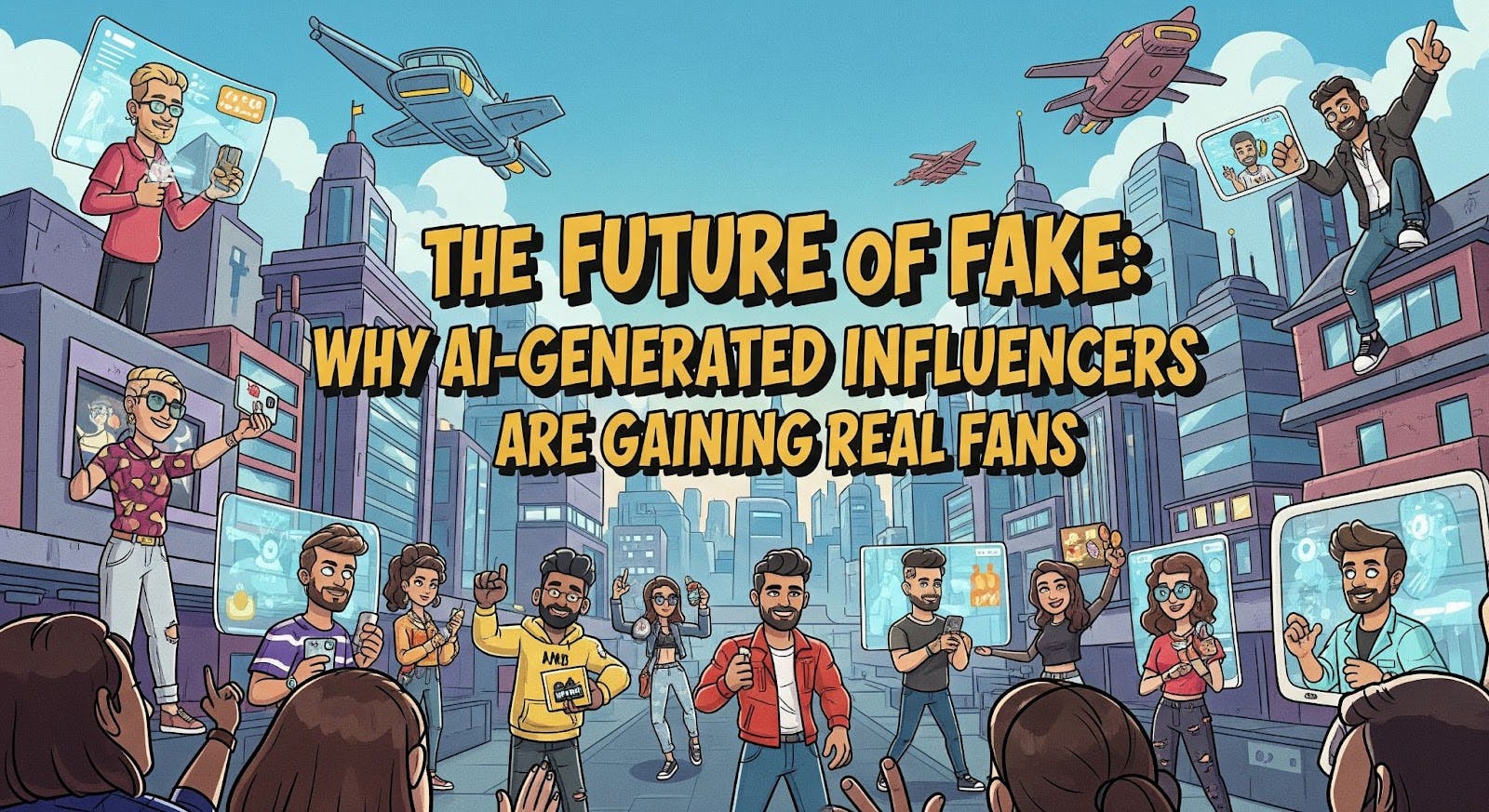In 2025, the influence no longer belongs to human beings only. Artificial Intelligence-created influencers, computer-generated avatars fueled by operating data and AI, and augmented personality design, are displacing real people as brand and content stars to become the new face of fashion, music, and social media. These digital designers are generating actual fan bases, signing huge corporate sponsorship contracts and even garnering devotion of fans similar to their flesh and blood counterparts.
Then why are individuals getting in the bandwagon and falling in love with influencers who do not even exist?
So, how can we dissect it?
Perfectly Designed to Influence
AI stars are not mere pretty CGI faces, they are brand machines, and their 3D artists, AI developers, and marketing experts are focused on maximal engagement. Without being a human being, Lil Miquela, designed by Brud (now acquired by Dapper Labs), was a model at Prada, featured in Calvin Klein advertising, released singles on Spotify, and acquired 3M of Instagram followers.
They are not in the humiliating situation of aging, failing to meet the deadlines or scandals (without a script). They can be edited at any one moment to reflect the trends or reactions of the audiences or even the platform algorithms. This is something that brands cannot control with human influencers AI creators can be customized fully, free of scandals, and brand-centric any time of the day.
What about the consumers? Lots of people enjoy the uniformity.
Why Fans Actually Connect
Shockingly, followers get emotionally attached to AI influencers even though they are aware of them being fictional. It is all psychology, as we have always been attached to the fictional characters, whether in anime or in video games. AI personalities merely extend it, pretending to be actual social media users: they post selfies and emotional remarks, as well as DM their devotees.
Just take Aitana Lopez, the first AI influencer in Spain. She talks about such accessible subjects as self-love, burnout, and relationship issues, which helps her feel authentic. As Deloitte (2024) mentions, forty percent of Gen Z do not mind whether an influencer is authentic just as long as the material is of good quality. Now it is emotional realism that trumps the biological authenticity.
Big Brands, Bigger Paychecks
Now, how about the thing that really counts; about dollars. AI purveyors are pocketing huge profits and companies are experiencing a boon in ROI. These artificial humans are also developed and coordinated in-house or through a marketing firm which has eliminated PR scandals, logistical nightmares, as well as uncertainty.
Look at the case of Shudu, the world first digital supermodel, created by Cameron-James Wilson, who has collaborated with Balmain and Fenty Beauty. Or Imma, a Japanese virtual model signed to IKEA and clocked virtual runways. Next comes Aitana Lopez, a high-fashion AI entrepreneur, who earns more than 10,000 USD a month on endorsements and high-quality digital content on such websites as Fanvue.
The math is true: AIs never need to sleep, never need to argue and can change their look or even brand messaging in an instant. Campaigns are pan-temporal 24*7 across time zones, and carried out with zero physical production costs. More cost-effective, meeting a scale, and fully customizable, it is easy to understand why brands are addicted.
Redefining “Real” on the Internet
AI influencers are not the fad but rather the cultural shift. Being human no longer implies being real and in touch with audiences. We already are accustomed to parasocial relations, and these digital personas take it a step further, and they are built to evoke emotion in the manner of fictional characters made real on the social media.
However, that comes at the cost of: unrealistic body ideals, creative labor, and the risk of manipulation. On the one hand, they grant freedom in expression, providing new forms of creativity, where the marginalized group can be expressive, using avatars to paint itself safely. By 2025, it might not be important to be real, but relevant, algorithm-friendly, and emotional.


